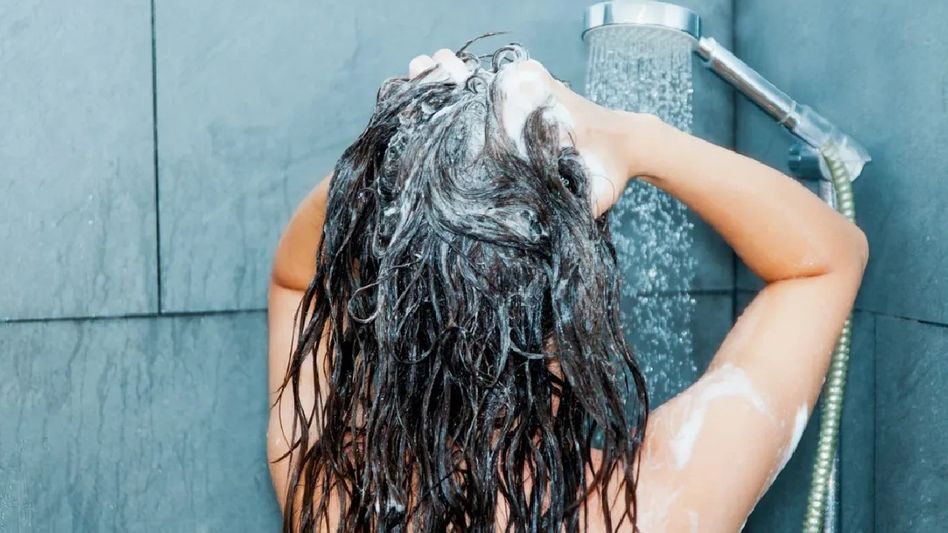Frequent Hair Washing: Unseen Damage and the Path to Healthier Hair
Washing our hair frequently might seem like a basic hygiene practice, a necessary step to maintain clean, healthy hair. However, this routine can often do more harm than good.

Washing our hair frequently might seem like a basic hygiene practice, a necessary step to maintain clean, healthy hair. However, this routine can often do more harm than good. The repercussions of frequent hair washing extend beyond just dry, brittle strands; they encompass a myriad of issues ranging from scalp problems to significant hair loss. Understanding the detrimental effects of frequent hair washing can help individuals make more informed decisions about their hair care routines and promote healthier, more resilient hair.
The Natural Balance of Oils
Our scalp produces natural oils, known as sebum, which play a crucial role in maintaining the health of our hair and scalp. Sebum acts as a natural conditioner, providing moisture and protection to the hair. Frequent washing strips the hair of these essential oils, leaving it dry and vulnerable. This constant removal of sebum can lead to an overproduction as the scalp tries to compensate, resulting in an oily scalp and dry ends—a paradoxical situation that can be difficult to manage.
Dryness and Brittleness
One of the most immediate and noticeable effects of frequent hair washing is dryness. Shampoos, especially those with strong detergents, strip the hair of its natural moisture. This leads to brittle hair that is more prone to breakage and split ends. Conditioners can help mitigate some of this damage, but they cannot fully replace the natural oils that have been removed. Over time, this cycle of stripping and attempting to rehydrate can weaken the hair shaft, making it more susceptible to damage from styling and environmental factors.
Scalp Irritation and Sensitivity
Frequent washing can also disrupt the delicate balance of the scalp's ecosystem. The scalp's natural oils have antimicrobial properties that protect against infections and inflammation. Stripping these oils away can leave the scalp vulnerable to irritants and pathogens, leading to conditions such as dandruff, itching, and redness. For individuals with sensitive skin, the detergents in shampoo can exacerbate these issues, causing even more discomfort and potential for long-term damage.
Color Fading
For those who color their hair, frequent washing can significantly accelerate color fading. Shampooing opens the hair cuticle, allowing color molecules to escape. This not only dulls the vibrancy of the color but also necessitates more frequent touch-ups, which can further damage the hair. Even shampoos marketed as color-safe cannot completely prevent this effect, though they may slow it down.
Hair Loss
One of the most alarming potential effects of frequent hair washing is hair loss. The constant mechanical action of washing, combined with the stripping of natural oils, can weaken hair at the roots. Over time, this can lead to increased shedding and, in some cases, noticeable thinning. While hair loss can result from a variety of factors, including genetics and health conditions, frequent washing is a preventable contributing factor that should not be overlooked.
Altered Hair Texture
Frequent washing can also alter the natural texture of hair. Curly and wavy hair types are particularly susceptible to damage, as these hair types rely heavily on natural oils to maintain their shape and definition. Stripping away these oils can cause curls to lose their bounce and definition, leading to frizz and an overall lackluster appearance. For those with straight hair, frequent washing can result in a limp, lifeless texture that lacks volume and movement.
Environmental Impact
Beyond the personal effects, frequent hair washing has environmental consequences. The overuse of shampoos and conditioners contributes to water waste and pollution from the chemicals in these products. By reducing the frequency of washing, individuals can not only improve the health of their hair but also reduce their environmental footprint.
Finding a Balance
The key to maintaining healthy hair is finding a balance that works for your specific hair type and lifestyle. For many, washing hair every two to three days is sufficient to keep it clean without causing excessive dryness or oiliness. Those with dry or curly hair might find that washing once a week or even less frequently is best. Using gentle, sulfate-free shampoos and incorporating regular conditioning treatments can help maintain the health and integrity of the hair. Additionally, alternative cleansing methods such as co-washing (using conditioner to wash the hair) can provide a gentler option for those looking to reduce the frequency of traditional shampooing.
While frequent hair washing might seem like a necessary step for maintaining clean and healthy hair, it often does more harm than good. The removal of natural oils, resulting in dryness, brittleness, scalp irritation, color fading, and even hair loss, highlights the need for a more balanced approach to hair care. By understanding the potential negative effects and adjusting our routines accordingly, we can achieve healthier, more resilient hair and reduce our environmental impact. It's time to rethink our approach to hair washing and embrace practices that promote long-term hair health.
Copyright©2024 Living Media India Limited. For reprint rights: Syndications Today









